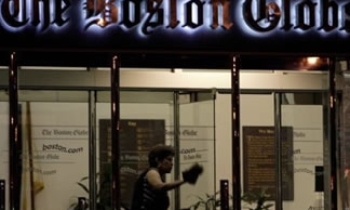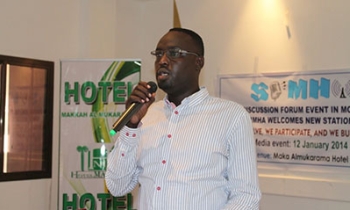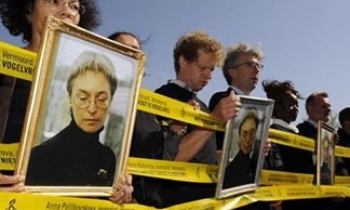In the end, what did Judith Miller accomplish by spending 85 days in an Alexandria jail?
Not much, say her detractors, noting that the deal the New York Times reporter ultimately made to testify about her confidential source in the Valerie Plame leak investigation was similar to agreements reached by Time magazine's Matthew Cooper and other journalists in the murky case.
Some of Miller's colleagues at the Times, who declined to be identified because they are challenging their bosses' stance, say much of the staff is frustrated and confused.
"People are angry," one staffer said. "Was this a charade on her part for martyrdom, or a real principle? She wanted to resurrect herself from the WMD thing," the staffer said, a reference to Miller stories about Iraq possessing weapons of mass destruction that turned out to be wrong.
"I am truly depressed," another staffer said. "It absolutely makes no sense. Basically she did the same thing Matt Cooper did, with the intervening weeks in jail. But I just don't buy that she's doing it for her own image enhancement."
Other journalists and media advocates say Miller and her newspaper took a courageous stand in demonstrating that news organizations must not betray their sources.
"I'd be very loath to be critical of what Judith did," said Lucy Dalglish, executive director of the Reporters Committee for Freedom of the Press, who visited Miller in jail. She said the public should have "a renewed confidence that when a reporter makes an agreement with a source, the reporter will do whatever possible to keep that confidence unless there was an agreement with the source" to release the journalist.
Times Executive Editor Bill Keller said yesterday: "We have a tradition here that when our reporters stand up for principle, we stand behind them. I'm proud that the tradition is intact."
But Lucie Morillon, Washington representative for Paris-based Reporters Without Borders, said she is disappointed by the agreement Miller struck with I. Lewis "Scooter" Libby, Vice President Cheney's chief of staff, to testify about their 2003 conversations on Plame.
"We understand Judith Miller didn't want to stay in jail, but the problem is the prosecutor put so much pressure on her that she was forced to reveal her source," Morillon said. She said she does not regard Libby's waiver as voluntary and that the deal is a "setback" for journalism. "The federal courts are getting bolder and bolder in forcing reporters to testify. With this case, it's going to get worse."
Special prosecutor Patrick J. Fitzerald's investigation of whether administration officials knowingly revealed Plame's undercover role in the CIA prompted testimony under waivers of confidentiality by journalists for NBC and The Washington Post, as well as Cooper. But it has not generated widespread public support for the media. One of the most criticized journalists has been columnist Robert D. Novak, who was the first to publish Plame's name and has refused to say whether he has testified.
Even some Miller supporters concede that the journalists involved are seen as protecting presidential aides who may have been retaliating against Plame's husband, a White House critic on the weapons controversy, rather than shielding whistle-blowers who were exposing corruption.
Miller said yesterday that she would have remained behind bars if her source -- Libby -- had not provided a "personal" waiver, as opposed to a blanket offer to reporters, and if Fitzgerald had not agreed to limit the scope of her testimony. "I am hopeful that my long stay in jail will serve to strengthen the bond between reporters and their sources," she said.
A hard-charging Pulitzer Prize winner and co-author of a best-selling book on bioterrorism, Miller was embedded with a U.S. military unit searching for illegal weapons in Iraq in 2003 and dealt extensively with Ahmed Chalabi, the Iraqi exile who had close ties to the Bush administration at the time.
A Times ombudsman criticized one of Miller's stories from that period for its "apparent flimsiness." Her aggressive brand of reporting has won her devoted fans as well as fierce detractors.
Arianna Huffington, the liberal commentator and blogger, accused Miller yesterday of "grandstanding" by going to jail. She said Miller was "effectively discredited" because of the weapons stories and that jail was "an opportunity to cleanse herself." Huffington also said Miller "has no obligation any more to remain silent" and should provide a full accounting in the Times, as Cooper did in Time after testifying.
Dalglish said she is struck by how "hostile" and "vicious" some journalists are toward Miller, which she attributes to both the weapons controversy and Miller's style.
"She's not exactly a warm and fuzzy person," Dalglish said. "She's reserved. She's not going to go out of her way to make lots of friends."
The case has galvanized support for a federal shield law, which has bipartisan sponsorship, that would limit the circumstances under which reporters could be prosecuted for refusing to reveal confidential sources.
Sen. Christopher J. Dodd (D-Conn.), one of the bill's sponsors, yesterday hailed Miller's release, saying "no reporter should be thrown in jail for doing their job." He added in a statement that the primary purpose of the measure, which the administration opposes, is not to protect journalists but "the public's right to information."









